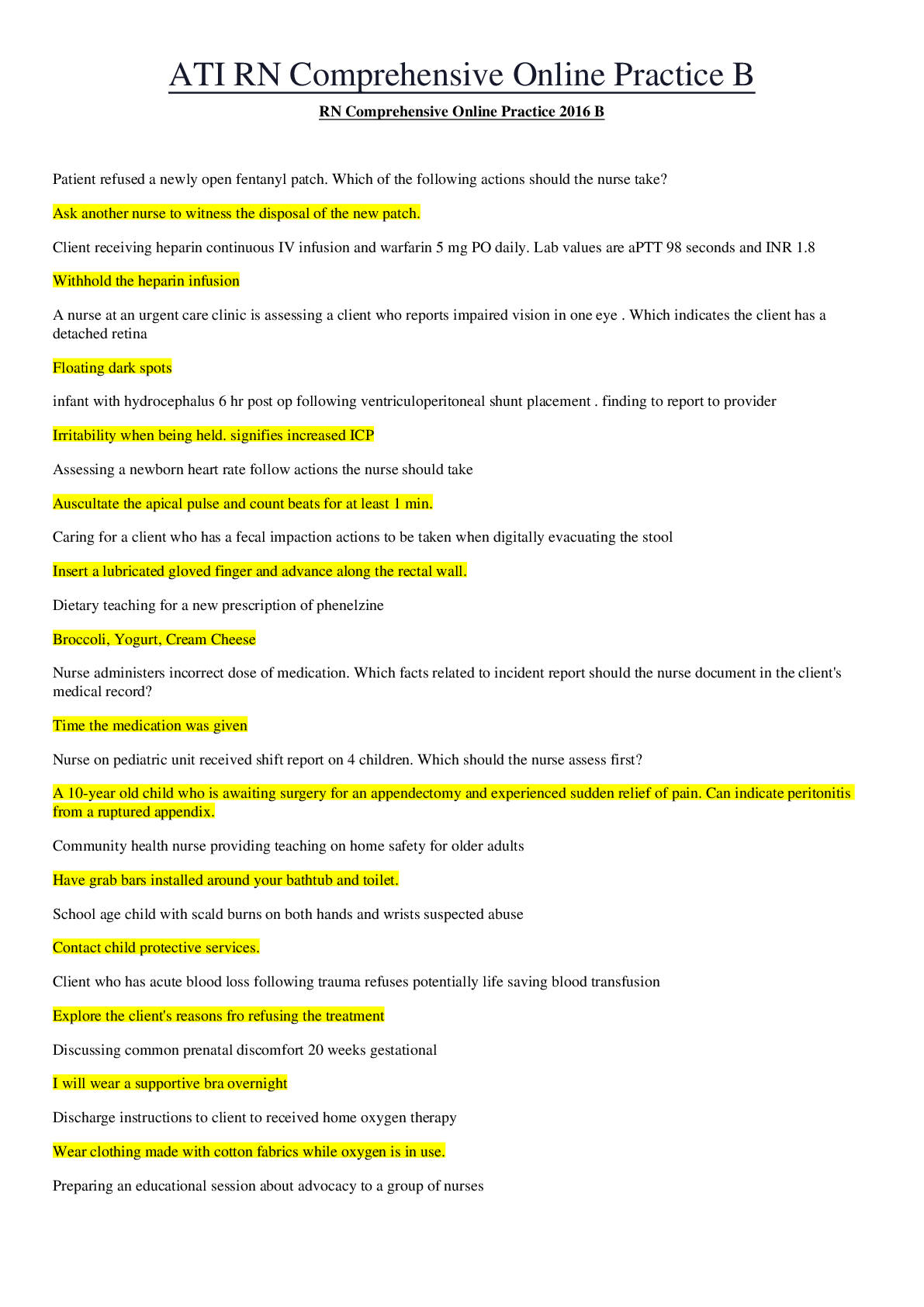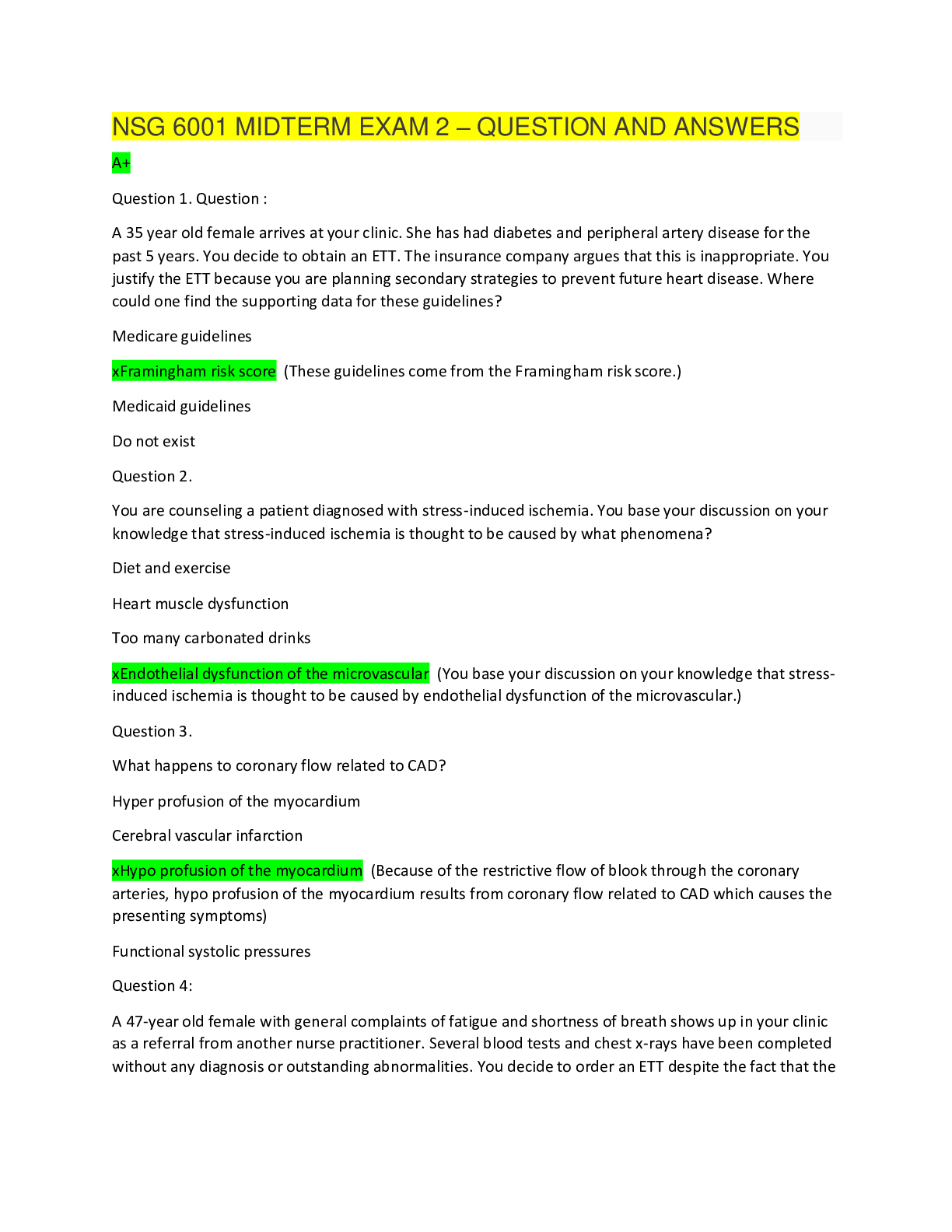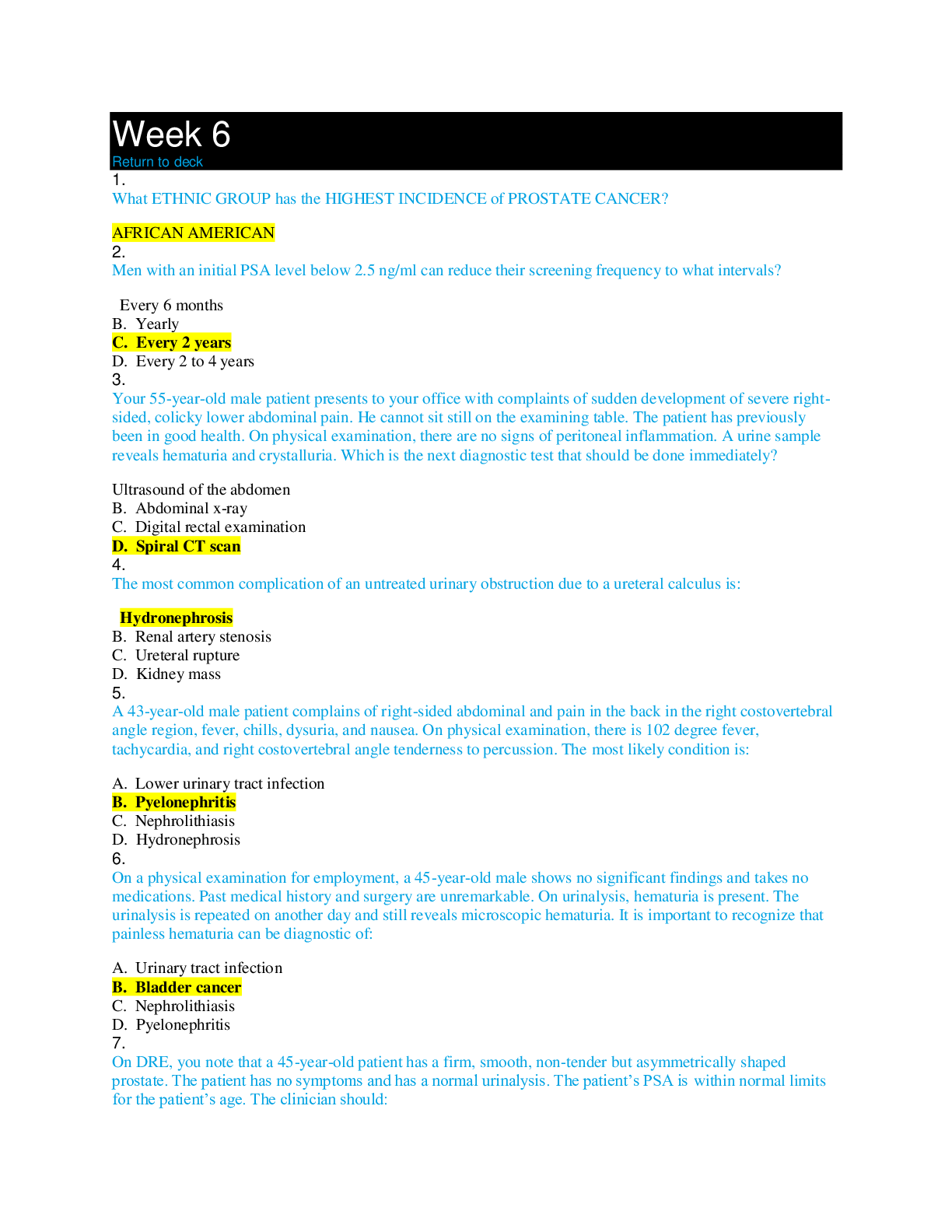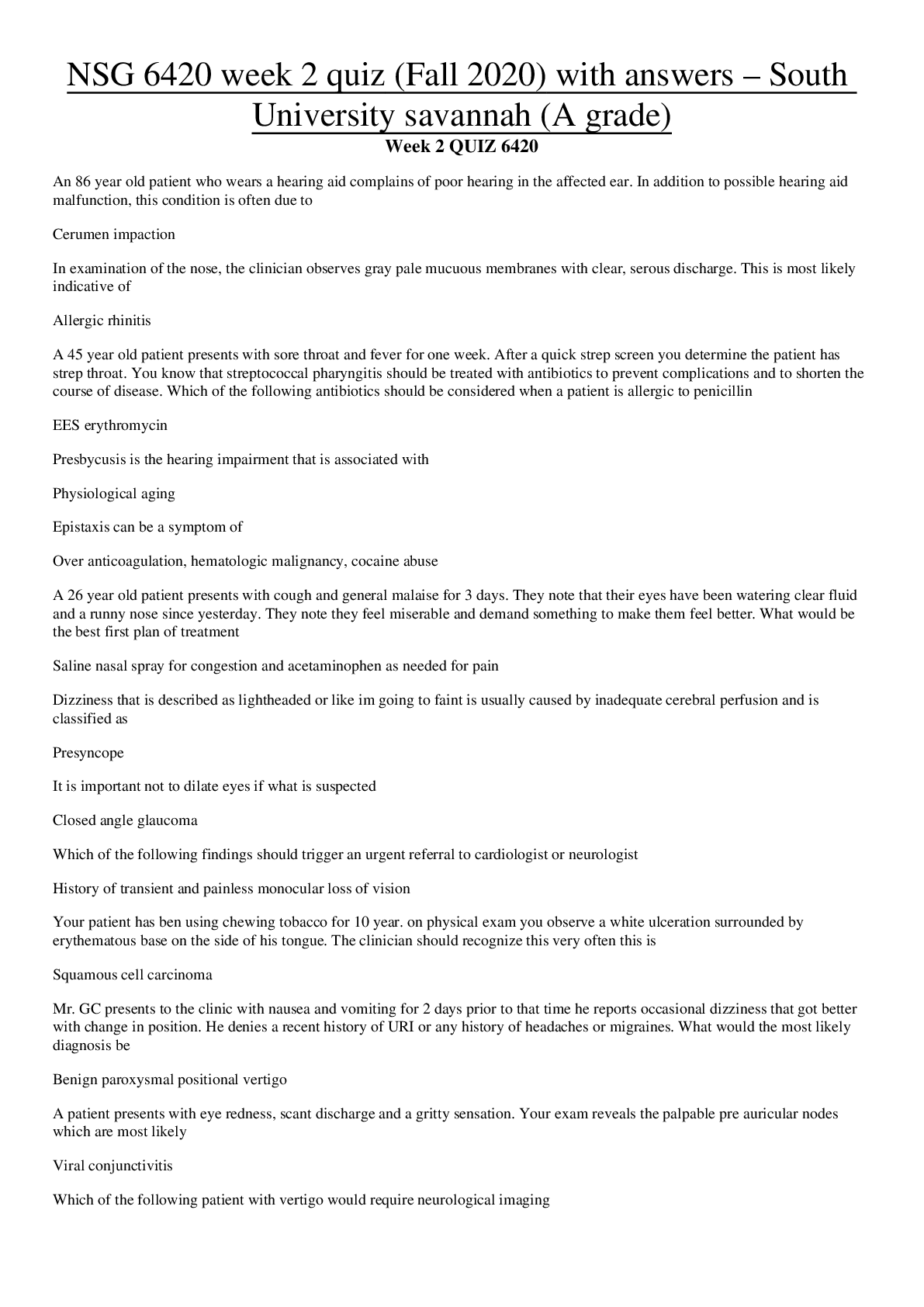NSG 6420 quiz 1 (Fall 2020) with answers – South University (A grade)
Document Content and Description Below
NSG 6420 quiz 1 (Fall 2020) with answers – South University (A grade) NSG6420 Quiz 1 . Question : Which of the following is the most important question to ask during cardiovascular healt... h history? Student Answer: Number of offspring Last physical exam Sudden death of a family member Use of caffeine Instructor Explanation: The sudden death of a family member is an important question to ask in the health history because it reveals the cardiovascular disease risk of the patient. Sudden death is usually due to an acute cardiovascular event, such as myocardial infarction, cardiac dysrhythmia, or stroke. Family history is particularly important for cardiac assessment because CVD, HTN, hyperlipidemia, and other vascular diseases often have a familial association that is not easily ameliorated by lifestyle changes. If there are deaths in the family related to CVD, determine the age and exact cause of death, because CVD at a young age in the immediate family carries an increased risk compared with CVD in an elderly family member. Ask about sudden death, which might indicate a congenital disease such as Marfan's syndrome. This is especially important to ask during pre-sports physicals because sudden death in athletes is often related to congenital or familial heart disease. Familial hyperlipidemia is autosomal dominant and often leads to CAD and MI at a young age. Family history of obesity and type 2 diabetes are also secondary risk factors for heart disease because the familial tendency for these is strong. Ask about smoking in the house, as secondhand smoke is a risk factor for respiratory and cardiac disease. (Goolsby 167-168) Goolsby, Mary J., Laurie Grubbs. Advanced Assessment Interpreting Findings and Formulating Differential Diagnoses, 3rd Edition. F.A. Davis Company, 11/2014. VitalBook file. Points Received: 2 of 2 Comments: Question 2. Question : A key symptom of ischemic heart disease is chest pain. However, angina equivalents may include exertional dyspnea. Angina equivalents are important because: Student Answer: Women with ischemic heart disease many times do not present with chest pain Some patients may have no symptoms or atypical symptoms; diagnosis may only be made at the time of an actual myocardial infarction Elderly patients have the most severe symptoms A & B only Instructor Explanation: The key symptom of IHD is chest pain, but other common symptoms include arm pain, lower jaw pain, shortness of breath, and diaphoresis. These symptoms are referred to as angina equivalents and can also include fatigue or breathlessness. Some patients may have no symptoms or atypical ones so that CAD may not be diagnosed until they experience a myocardial infarction. (Kennedy-Malone 227) Kennedy-Malone, Laurie, Kathleen Fletcher, Lori Martin-Plank. Advanced Practice Nursing in the Care of Older Adults. F.A. Davis Company, 2014-01-14. VitalBook file. Points Received: 0 of 2 Comments: Question 3. Question : A 55-year-old post-menopausal woman with a history of hypertension complains of jaw pain on heavy exertion. There were no complaints of chest pain. Her ECG indicates normal sinus rhythm without ST segment abnormalities. Your plan may include: - - - - - - - - Question 19. Question : Mr. A returns to your clinic and a diagnosis of hypertension is made. He is started on a diuretic and counseled on lifestyle modifications including increasing activity and smoking cessation. On his next visit you note that his blood pressure remains elevated. Before referring to a specialist you should do all of the following except: Student Answer: Assure medications are at appropriate dose Identify any underlying medical condition that requires treatment Review diet with Mr. A and refer to dietician if it is diet problematic Determine he has ‘white coat’ hypertension because his home readings are also elevated Instructor Explanation: MedU Card #22 Points Received: 2 of 2 Comments: Question 20. Question : Mr. A has many issues that seem to be interfering with his health outcomes. In order to negotiate and formulate a patient-centered management plan you take the time to gather more information. This can be started by asking the following question: Student Answer: What do you think caused your hypertension and how has it affected your life? I see that you are 20 pounds overweight -- do you exercise? Does you wife help you to manage your diet and medication? Taking your blood pressure everyday is important so that I can see what happens each day. Do you do this? Instructor Explanation: MedU Card #23 [Show More]
Last updated: 2 years ago
Preview 1 out of 25 pages

Buy this document to get the full access instantly
Instant Download Access after purchase
Buy NowInstant download
We Accept:

Reviews( 0 )
$12.50
Can't find what you want? Try our AI powered Search
Document information
Connected school, study & course
About the document
Uploaded On
May 14, 2020
Number of pages
25
Written in
Additional information
This document has been written for:
Uploaded
May 14, 2020
Downloads
0
Views
447








 – University of the People.png)

















